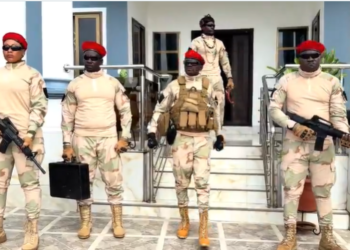To foster respect between artists and DJs in Ghana, several measures can be put in place.
Organizing workshops, seminars, or conferences that bring artists and DJs together helps focus on the importance of collaboration, understanding each other’s roles, and building mutual respect.
Artists and DJs are encouraged to collaborate on projects. This is facilitated through platforms like music festivals, industry events, or online platforms. Collaborations help to foster mutual respect by showcasing the value that each party brings to the creative process.
Establishing awards or recognition programs that celebrate outstanding collaborations between artists and DJs. This motivates both parties to work together and acknowledge the contributions of each other.
Network events specifically for artists and DJs should be organized to provide opportunities for them to interact, share experiences, and build relationships. By fostering a sense of community, respect naturally develops.
Establishing clear communication channels between artists and DJs. This includes having dedicated representatives or liaisons who facilitate communication, address concerns, and ensure smooth collaborations.
Training programs on professionalism, communication, and conflict resolution for both artists and DJs should be offered to help them develop the necessary skills to navigate potential conflicts and maintain respectful relationships.
The formation of artist and DJ associations or unions that advocate for their rights and interests helps organizations work towards creating a supportive environment and fostering respect within the industry.
Ghanaian Disc Jockeys (DJs) have expressed their displeasure at what they describe as continuous disrespect meted out to them by artists when the opportunity reared its head.
Popular Nightlife DJ, AD DJ, has challenged the CAA (Creative Arts Agency) to have a conversation with the artists to better understand that they were not backburners in their (artists) careers.
“There are many musicians that you help to get to the top but they turn you down with protocols and unnecessary excuses when you even need a favor in return. How do you expect me to use my platform to promote your music to get you there only for you to turn around to disrespect me when you are a big artiste?
“There should be a mutually beneficial relationship and not one where the artist feels he is too special if we really want to promote PlayGhana and make it successful. The truth is that DJs have built a lot of resentment against artistes.”
AD DJ
Building respect takes time and effort from all parties involved. By implementing these measures and promoting a culture of collaboration and understanding, artists and DJs in Ghana can develop a strong and respectful working relationship.
Promoting Ghana Music On Air

To enhance the visibility of Ghanaian songs played on air by DJs, it is important to have policies in place that support their proper implementation.
These policies help create a more supportive environment for local music and ensure that Ghanaian artists receive the recognition they deserve.
Introducing a quota system that mandates a certain percentage of airtime dedicated to playing Ghanaian songs will promote local talent and provide exposure to up-and-coming artists.
Collaboration with industry bodies such as the Musicians Union of Ghana (MUSIGA) or the Ghana Music Rights Organization (GHAMRO) to develop guidelines and policies that protect and promote local music. These organizations help monitor compliance and work with radio stations to encourage the inclusion of Ghanaian songs in their playlists.
Incentives for DJs who actively promote Ghanaian music should be provided. This could include recognition, awards, or performance bonuses. Recognizing DJs who support local talent encourages others to follow suit.
Public awareness campaigns should be launched to educate listeners on the importance of supporting local music.
Developing comprehensive databases of Ghanaian music that DJs can access to discover new tracks and artists. This makes it easier for them to incorporate local songs into their playlists.
Andy Dosty pointed out that PlayGhana could be achieved if the DJs are committed, in addition to the presence of a policy to back proper implementation.
The Play Ghana initiative seeks to ensure that songs by Ghanaian artists are played frequently on air, in nightclubs, and in churches to increase the visibility of locally produced music.
“I think there should be a policy that can force radio managers to play a percentage of Ghanaian music with punitive measures taken against those who flout the directive.”
Andy Dosty
It’s important to note that while policies exist, their implementation and effectiveness vary.
By implementing these policies, radio stations can play a significant role in increasing the visibility of Ghanaian songs and supporting the growth of the local music industry.
READ ALSO: GSE Sees Stability as CI Holds Steady







